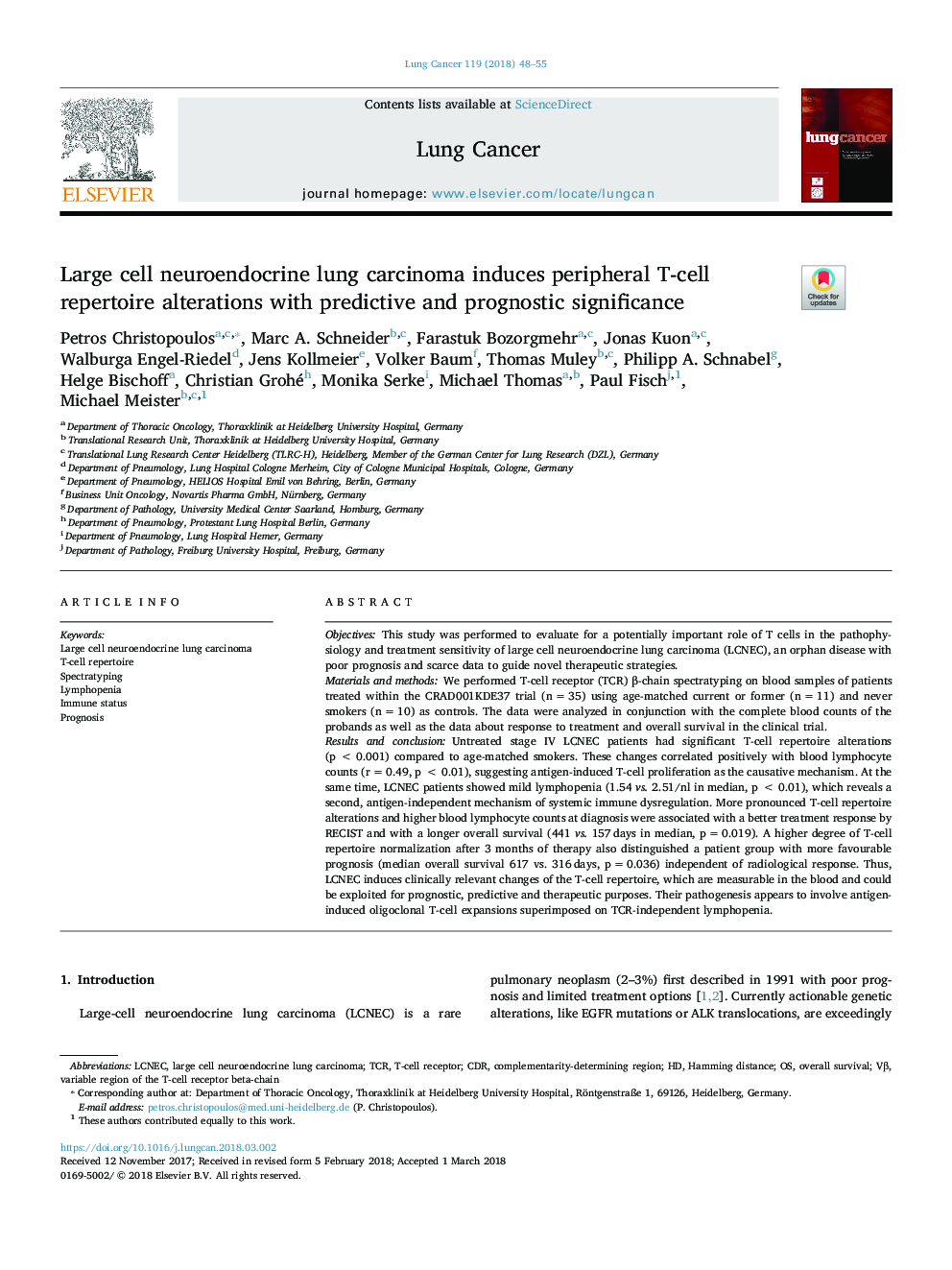| Article ID | Journal | Published Year | Pages | File Type |
|---|---|---|---|---|
| 8453869 | Lung Cancer | 2018 | 8 Pages |
Abstract
Untreated stage IV LCNEC patients had significant T-cell repertoire alterations (pâ¯<â¯0.001) compared to age-matched smokers. These changes correlated positively with blood lymphocyte counts (râ¯=â¯0.49, pâ¯<â¯0.01), suggesting antigen-induced T-cell proliferation as the causative mechanism. At the same time, LCNEC patients showed mild lymphopenia (1.54 vs. 2.51/nl in median, pâ¯<â¯0.01), which reveals a second, antigen-independent mechanism of systemic immune dysregulation. More pronounced T-cell repertoire alterations and higher blood lymphocyte counts at diagnosis were associated with a better treatment response by RECIST and with a longer overall survival (441 vs. 157â¯days in median, pâ¯=â¯0.019). A higher degree of T-cell repertoire normalization after 3 months of therapy also distinguished a patient group with more favourable prognosis (median overall survival 617 vs. 316â¯days, pâ¯=â¯0.036) independent of radiological response. Thus, LCNEC induces clinically relevant changes of the T-cell repertoire, which are measurable in the blood and could be exploited for prognostic, predictive and therapeutic purposes. Their pathogenesis appears to involve antigen-induced oligoclonal T-cell expansions superimposed on TCR-independent lymphopenia.
Keywords
Related Topics
Life Sciences
Biochemistry, Genetics and Molecular Biology
Cancer Research
Authors
Petros Christopoulos, Marc A. Schneider, Farastuk Bozorgmehr, Jonas Kuon, Walburga Engel-Riedel, Jens Kollmeier, Volker Baum, Thomas Muley, Philipp A. Schnabel, Helge Bischoff, Christian Grohé, Monika Serke, Michael Thomas, Paul Fisch, Michael Meister,
